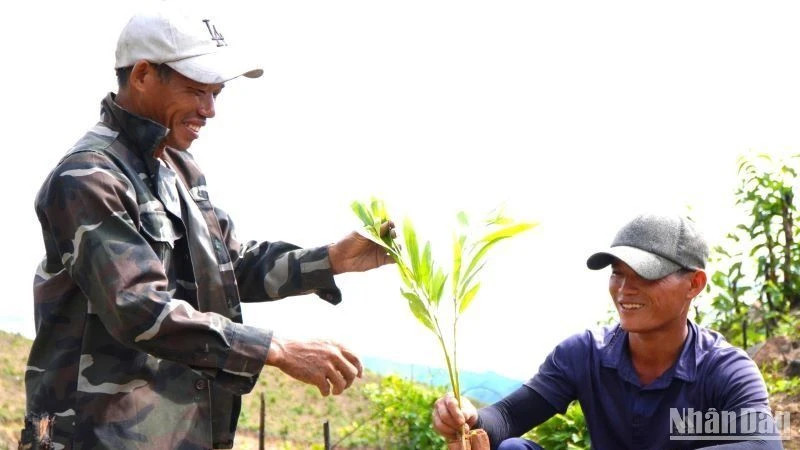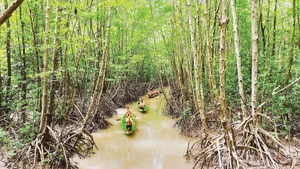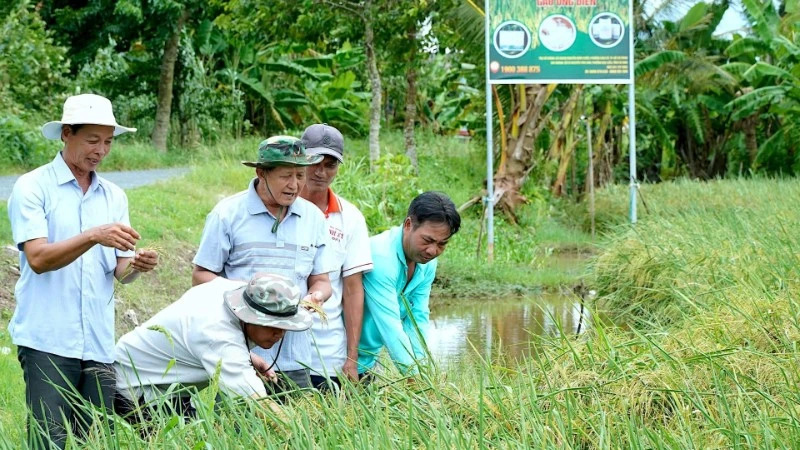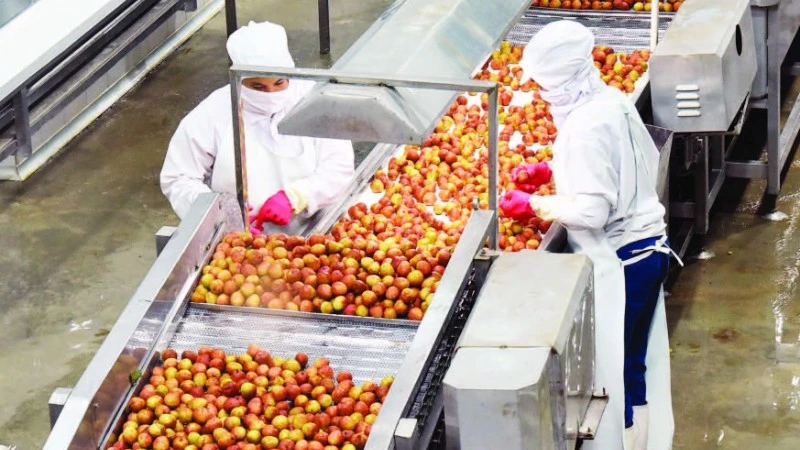This initiative has fostered forest restoration, improved ecosystems, and provided stable economic benefits to ethnic minority communities in disadvantaged regions.
In Phu Yen Province, the reforestation season is in full swing. The Department of Agriculture and Rural Development has dispatched teams to guide local efforts in clearing vegetation, preparing planting sites, and inspecting the quality of saplings at nurseries across the province.
According to Le Van Be, Deputy Director of the Department of Agriculture and Rural Development in Phu Yen, the province aims to plant 6,700 hectares of forests in 2024. Over 2,000 hectares are earmarked for protective and special-use forests managed by state-owned enterprises and forest management boards. The remaining land will be used for local household forest production.
For example, So Minh Thong, a resident of Tan Thanh Village in Son Hoa District, has received two hectares of forest land under Decree 168. Encouraged by the economic benefits of forestry, he rented an additional four hectares for planting this year. “So far, I’ve planted three hectares, but I’m awaiting saplings from Binh Dinh Province to cover the rest. We hope the government will allocate more forest land so we can increase our family’s income,” he shared.
Similarly, in 2018, 15 ethnic minority households in Tong Binh Village received 50 hectares for reforestation. These efforts have since yielded harvests, enabling the residents to improve their living conditions and escape poverty.
Phu Mo Commune in Dong Xuan District boasts over 34,000 hectares of forest land. Previously, much of this land was controlled by organisations through projects, leaving locals with limited production opportunities. The district implemented Resolution 09-NQ/HU in 2021 to address these challenges, enhancing forest management and sustainable development.
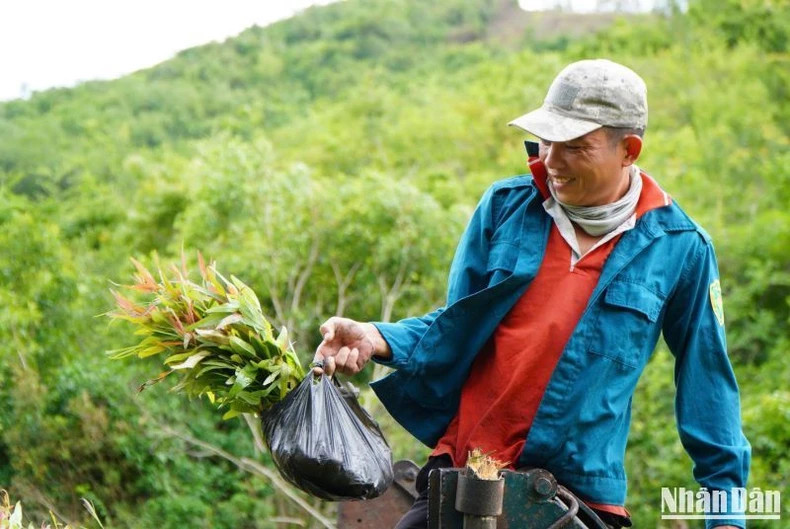 |
| The main saplings used for forest planting in Phu Yen in 2024 include hybrid acacia and eucalyptus. |
As a result, 46 households in Phu Mo have been allocated 200 hectares of forest land in sub-zone V2.2, with each household receiving 3–6 hectares for planting acacia. Additionally, 61 households in sub-zone 74 have cultivated 107.8 hectares of acacia. Local authorities are expediting the process of issuing land-use certificates and allocating more land to meet community needs.
To support the 2024 reforestation season, Phu Yen has 43 nurseries producing hybrid acacia and four cultivating other species such as eucalyptus, teak, and rosewood. These nurseries strictly adhere to quality control measures to ensure the health and viability of the saplings.
Huynh Ngoc Han, a nursery owner in Tuy An District, reported having produced 800,000 saplings this year, with 400,000 already sold. “We prioritise quality to meet the demands of forest owners,” he noted.
Forest management boards and reforestation companies in Phu Yen are accelerating planting activities to align with approved designs and seasonal schedules. Local households are also mobilising labour to ensure timely completion.
The Department of Agriculture and Rural Development confirms that most saplings used this year come from certified nurseries, meeting quality standards. In addition to hybrid acacia and eucalyptus, certain regions are planting valuable species such as rosewood, green ironwood, and cinnamon to diversify forest ecosystems.
The Forest Protection Department collaborates with local authorities to inspect, monitor, and promote compliance with forestry regulations. They also closely track reforestation progress to ensure the province meets its target of nearly 6,700 hectares in 2024. By fostering sustainable forestry practices, Phu Yen aims to balance ecological restoration with economic growth, benefitting communities and the environment.
